Régulièrement, C& passe en revue des collections de livres à la recherche de publications d’exception. Cette fois, Keren Lasme a choisi cinq ouvrages dans la bibliothèque afro-féministe AWU à Dakar.

AWU Library. Photo: Keren Lasme.
Nichée dans une charmante et accueillante maison d’artiste au cœur d’Ouakam (Dakar), AWU est une bibliothèque indépendante au profil unique, dont le nom signifie écho, relais et chœur en wolof. Créée en 2020 par Chiara Figone, fondatrice d’Archive Books et éditrice aux multiples talents, le lieu est géré avec grand soin par une équipe de femmes remarquables, dont la libraire et chercheuse Kany Sarr.
AWU est une bibliothèque afro-féministe qui rassemble des écrits et des narrations d’autrices, activistes, artistes, ainsi que d’autres actrices de la Global Majority, (« majorité globale »). Imaginée comme une safe place qui ferait écho aux voix historiquement marginalisées de femmes, mais aussi comme un espace dédié à un dialogue tolérant, à une écoute attentive et à l’exploration de la pensée politique, AWU aborde toute rencontre selon un angle féministe, queer, anticolonial et multisensoriel. Son public se réunit en groupes intergénérationnels afin de débattre des problématiques de l’identité, du genre, de la sexualité, de l’immigration, parmi d’autres thématiques politiques qui pèsent sur notre conception de la liberté. Des lectures publiques sont organisées dans la bibliothèque afin d’étudier et honorer les œuvres ; des professionnel·les de la culture sont invité·es à échanger leurs idées. AWU offre une riche et multiple palette de pistes de réflexion tout en mettant à disposition un refuge dans lequel visiteurs et visiteuses peuvent s’immerger dans la littérature qui nourrira et aiguisera leurs esprits. Il n’a pas été chose facile d’effectuer une sélection parmi les œuvres, mais cela en a valu la peine.
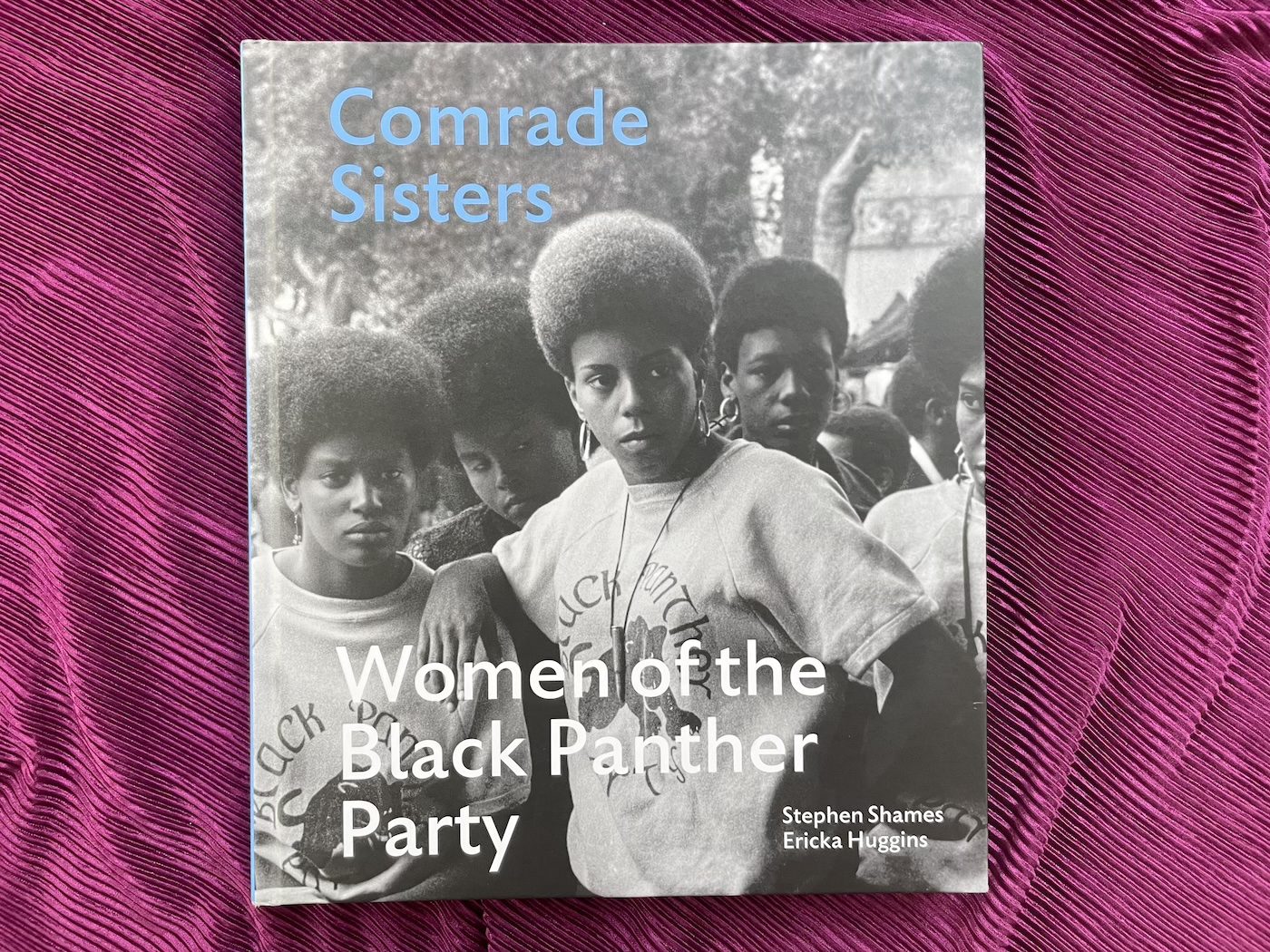
Comrade Sisters: Women of the Black Panther Party, Stephen Shames et Ericka Huggings (2022).
La plupart d’entre nous ont entendu parler de Fred Hampton, Huey Newton et Eldridge Cleaver. Nous avons également entendu la voix d’Angela Davis, lu les mots d’Assata Shakur et été témoins, par le biais de séquences vidéo d’archives, de la franchise de Kathleen Cleaver. Mais peu d’entre nous connaissent les noms de Malaika Abernathy, Sheba Haven, Elaine Young X, Betty Sio ou Yolanda « Yo-Yo » Smith, pour ne citer que quelques-unes des femmes des Black Panthers. Lorsqu’il s’agit de mouvements révolutionnaires de libération, qui est digne de rester dans les mémoires ? Celles qui ont été en première ligne, celles qui ont fait sécession ou celles qui étaient dans les coulisses, se chargeant d’organiser, de soigner, d’enseigner, de cuisiner, etc. ? Comrade Sisters: Women of the Black Panther Party est un hommage saisissant qui égrène une série de photographies en noir et blanc de Stephen Shames, dont certaines n’ont encore jamais été publiées, montrant les femmes membres du Black Panther Party. Ericka Huggings, elle-même ancienne militante, a écrit un nouvel essai présenté en regard de contributions intimes de plus de cinquante autres anciennes du mouvement. Les vies de plus de 300 femmes qui constituaient la base du parti sont ainsi révélées au grand jour. Et doivent s’inscrire dans notre mémoire collective.
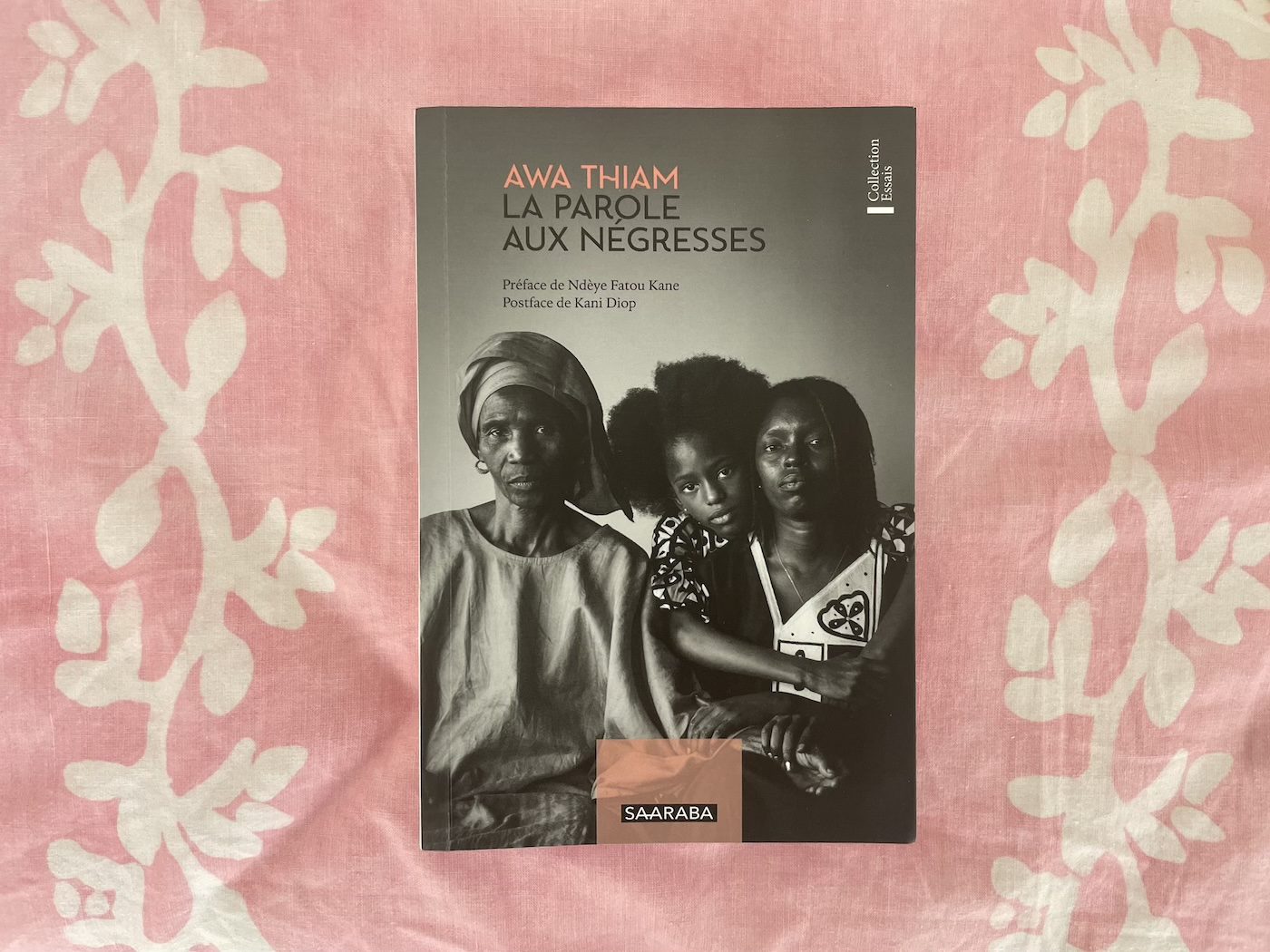
La Parole aux Négresses, Awa Thiam (2024)
Au début des années 2000, on raconte qu’il était si difficile de se procurer un exemplaire de La Parole aux Négresses (1978) que des doutes sur son existence même coururent alors. Les heureux·ses lecteur·rices possédaient une version en PDF qui circulait d’un ordinateur à l’autre sur les campus universitaires. Le travail d’Awa Thiam sur l’afro-féminisme francophone était trop dérangeant pour le contexte dans lequel elle écrivait, bien qu’il ait été vital pour les luttes de libération. Quarante-six ans après sa première parution, ce texte fondateur sur la pensée féministe intersectionnelle et décoloniale a miraculeusement refait surface. Non pas une mais deux maisons d’éditions l’ont republié : les Éditions Divergences en France et Saaraba Éditions au Sénégal. Pour le lancement de l’édition sénégalaise, la bibliothèque AWU a organisé une lecture publique en collaboration avec Saaraba ainsi qu’un entretien avec la chercheuse Kani Diop – dont l’interview de l’autrice constitue la postface. J’ai vécu cet événement comme un appel d’une multitude de voix, une séance de résistance, un exercice d’écoute profonde des femmes africaines dont les voix d’un passé encore récent résonnent encore.
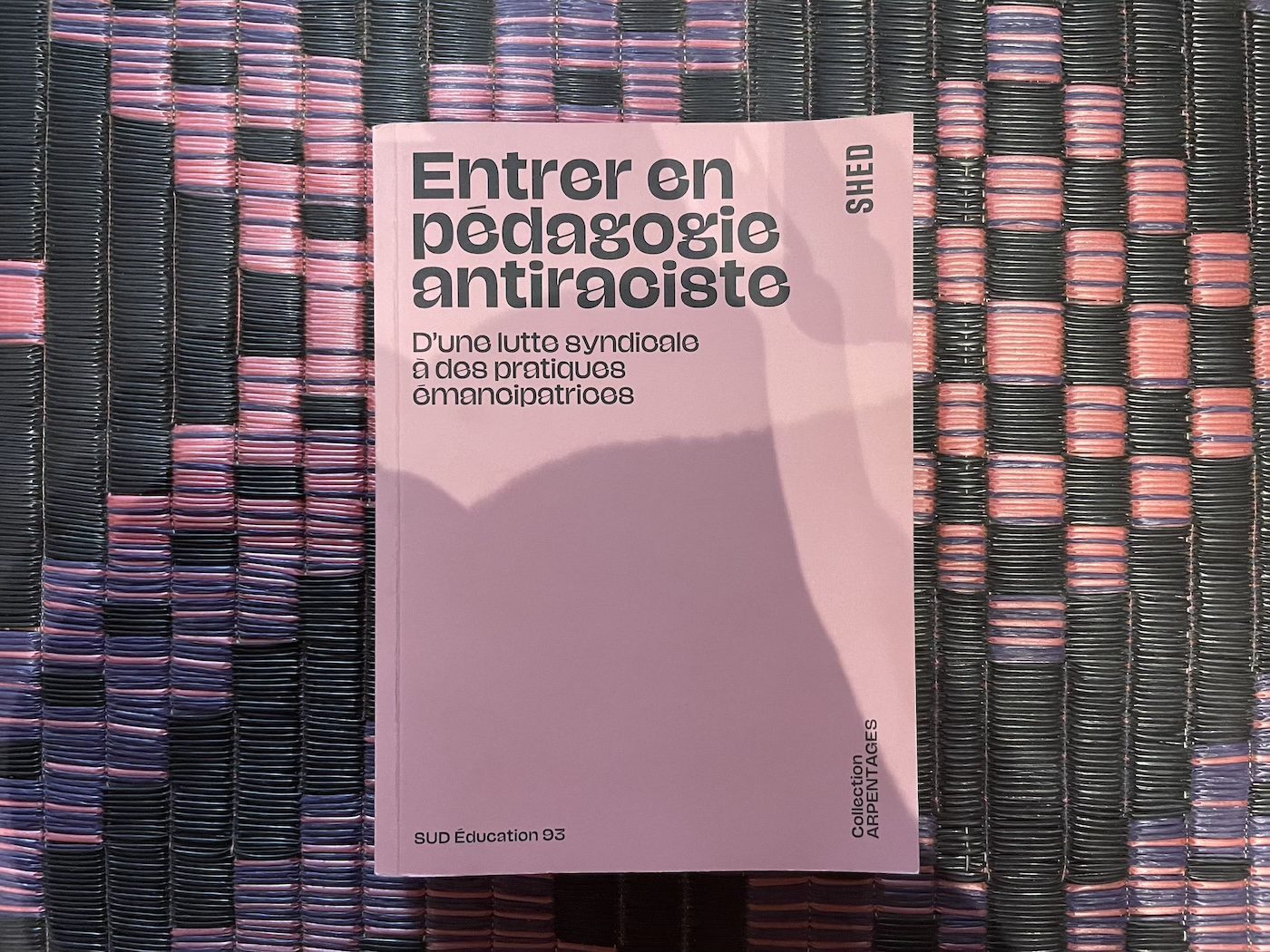
Entrer en pédagogie antiraciste : D’une lutte syndicale à des pratiques émancipatrices, SUD Éducation 93 (2023)
Ce livre est une ressource remarquable, qui a sa place dans tout cadre d’apprentissage et au-delà. Il est le résultat d’une série de stages de formation à la pédagogie antiraciste destinés à la communauté éducative, menés par le syndicat français de l’éducation SUD Éducation 93 entre 2017 et 2022. Inspiré par les théories de pédagogie émancipatrices de penseurs et de penseuses comme Paulo Freire, bell hooks et Amílcar Cabral, ce recueil aborde les formes de racisme institutionalisé au sein du système éducatif français et entend partager les outils de lutte contre le racisme qui peuvent être combinés dans la pratique avec les méthodes d’apprentissage déjà en place pensées pour la communauté enseignante. Publié par Shed Publishing, cet ouvrage à la fois esthétique et pionnier dans ce domaine en France réunit des contributions de sociologues comme Saïd Bouamama, Ugo Palheta et Fabrice Dhume – entre autres –, et traite d’un grand nombre de propositions, telles que des techniques d’enseignement décolonial en cours d’histoire et géographie, de solidarité entre membres racisés des équipes pédagogiques et d’ethnomathématique.
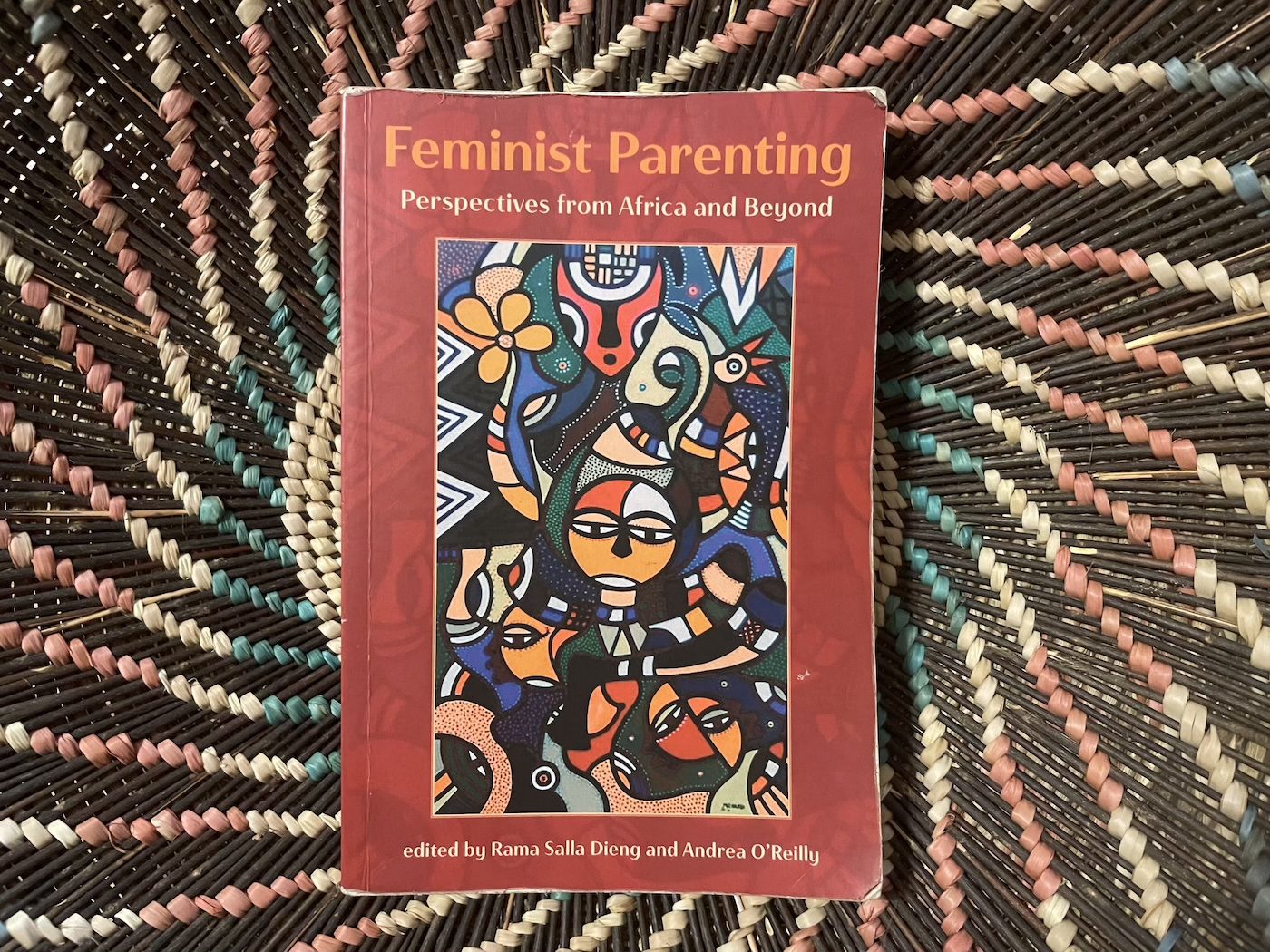
Feminist Parenting: Perspectives from Africa and Beyond, sous la direction de Rama Salla Dieng et Andrea O’Reilly (2020)
« Après un long et difficile travail, je fus inquiète lorsque l’infirmière s’approcha de moi pour me dire qu’elle était vraiment désolée de me faire part que… – mon esprit enfiévré pensa immédiatement que mon enfant était mort-né ou avait des complications. Lorsque je lui demandai, anxieuse, ce qu’il en était de mon enfant, elle me dit : « Vous avez une fille », et ajouta sur un ton rassurant : « Votre prochain enfant sera un garçon ! »
Voici un extrait de Intuitive Feminist Parenting, un essai écrit par la militante des droits des femmes Jael Silliman, publié avec trente-deux autres histoires intimes, émouvantes, belles, parfois bouleversantes, qui témoignent de ce que cela signifie et de ce que cela coûte d’être parent et féministe. Publiée par Demeter, cette anthologie rassemble des expériences précieuses et des réflexions inspiratrices de parents originaires d’Équateur, du Pakistan et de Côte d’Ivoire, parmi d’autres pays du Sud global. Issus de diverses générations, ces parents regroupent des universitaires féministes, des personnes travaillant dans le secteur industriel, des responsables politiques, des activistes, des étudiantes et étudiants dont les narrations à la première personne sont autant de tentatives de théoriser des pratiques parentales féministes.
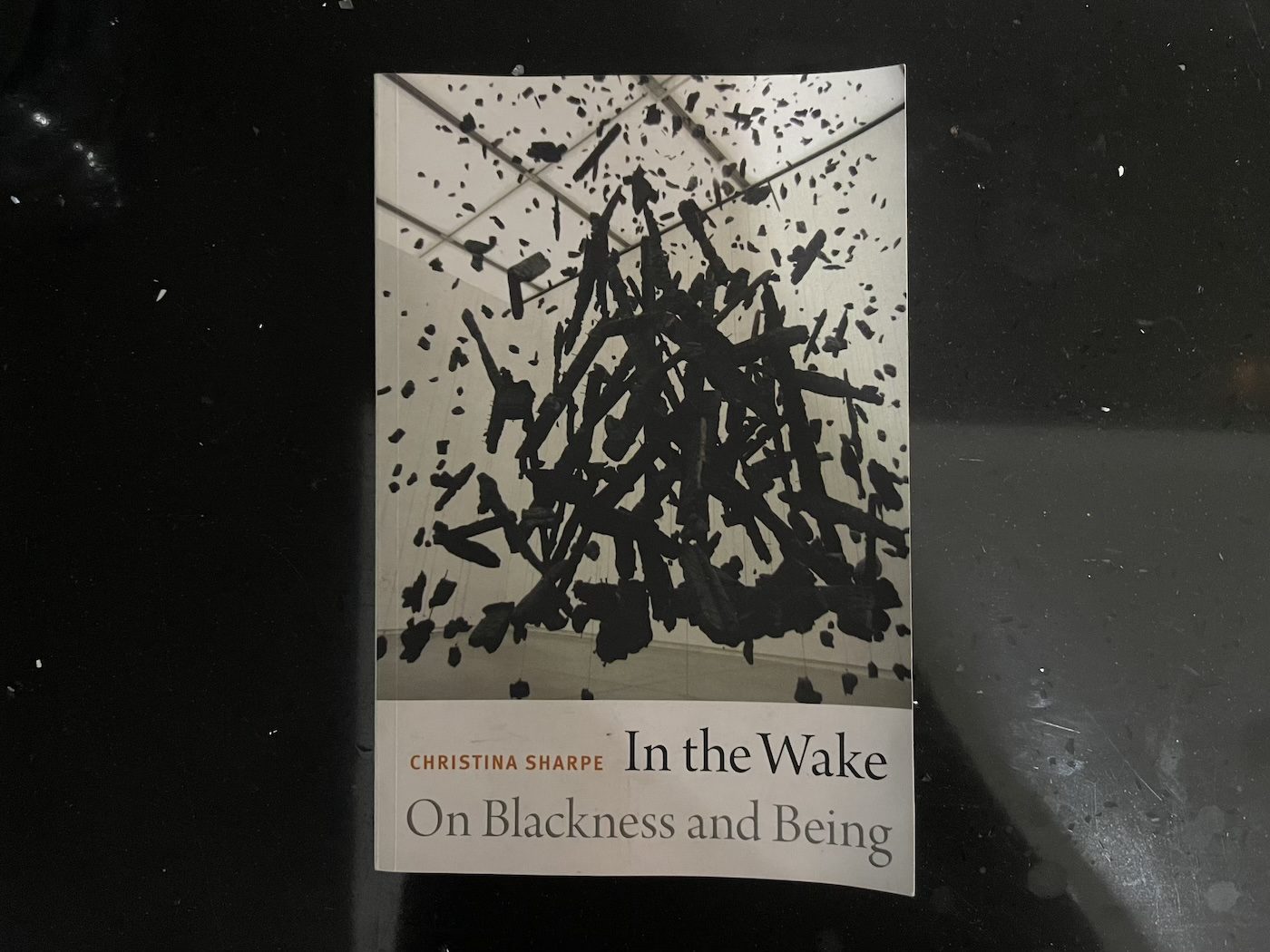
In the Wake: On Blackness and Being, Christina Sharpe (2016)
Dans la note conceptuelle de la 15e Biennale de Dakar, dont le thème était « The Wake, L’éveil, le Sillage » et qui s’est tenue entre le 7 novembre et le 7 décembre 2024, la commissaire d’exposition Salimata Diop explique que l’événement artistique très attendu est partiellement inspiré par l’ouvrage de référence de Christina Sharpe In the Wake. Dans cet essai historique et percutant en quatre actes, Sharpe emmène ses lecteurs et ses lectrices dans un voyage au cours duquel elle enquête sur les traces de l’esclavage. Elle propose un ambitieux cadre conceptuel pour côtoyer la mort tout en refusant de mourir et de continuer à avancer dans la vie en dépit du caractère quotidien de la mort immanente et imminent des Noirs de la diaspora. Émotionnellement forte, physique, intellectuelle, cette « œuvre d’éveil » est une méthode essentielle, un site des possibles, un moyen de survivre dans un environnement où la mort des Noirs est la règle.
Keren Lasme est une artiste, autrice et curatrice littéraire dont le travail s’intéresse à la formation de l’identité mythopoétique, à l’activation du savoir et l’usage de la fiction et de l’imagination comme technologies spatiotemporelles pour la construction de mondes intérieur et extérieur. Sa pratique artistique est orientée vers le soin collectif, la pédagogie militante et la politique du plaisir parallèlement au recours à la mémoire et l’imagination collectives archivées dans les littératures africaines comme pratiques.
Traduit par Myriam Ochoa-Suel.
DANS LA BIBLIOTHèQUE
More Editorial